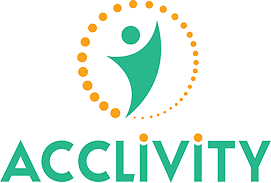Academic integrity is a guiding principle in higher education that allows the instructors and learners to exercise honesty, equality and trustworthiness in learning. Academic integrity will help students learn the importance of critically reviewing and citing other’s works and go a long way in ensuring professors advance in academic careers by valuing this aspect of professionalism. Continue scrolling down to discover the importance of academic honesty and its main aspects in higher education.
Builds The Reputation Of Learning Institutions
Academic uprightness is founded on five main core values. The core values of academic uprightness include honesty, trust, equality, respect and responsibility. Institutions that fully embrace and acknowledge these values attract the right learners, instructors and have positive reputations.
Offers Opportunity For Career Advancement
Advancement in careers in higher education is dependent on the integrity that a particular learning institution displays. As a professor, you will discover that the opportunities you get in careers in higher education will be a factor of your hard work and determination and the integrity that your learners and colleagues display. The good news is that news about high levels of integrity spreads fast, creating opportunities for your advancement in the professoriate. It is, therefore, very crucial, you look for ways you can build your integrity, such as engaging in career coaching programs where you get to learn on how you can implement and highlight the values of integrity, thereby attracting the right people and resources into your sphere of influence that will help you advance to the next level.
Promotes Creativity And Innovation
Through academic honesty, instructors are able to have a clear and accurate view of the performance of students and can therefore be able to help students improve their performance. Remember, academic uprightness is founded on honesty and equality values. This means instructors give equal attention to learners who are in return expected to display honesty in the classwork and projects.
Promotes Ethical Behavior In Higher Education
As outlined earlier, integrity is embedded in principles of ethical behavior such as equality, sense of responsibility, trustworthiness etc. Ethical behavior is crucial in higher education since it helps recognize and appreciate work done by other scholars, eliminates exam cheating, and gives instructors a sense of responsibility to perform their duties.
Now that you have discovered the importance of integrity in higher education, it’s crucial you know how you can incorporate academic integrity in your career. There are various platforms that institutions have implemented, such as adjunct faculty training programs to build academic integrity in their instructors and students. However adjunct faculty programs face multiple limitations, such as lack of adequate time to fully train and address academic integrity. The best way to build academic integrity in your career and life as a learner or instructor is by enrolling in an academic career coaching program specially designed to help you advance in your career.
Do not be left out; book an appointment with us at The Acclivity and begin your journey in displaying exemplary academic integrity that will create golden opportunities for advancement in your academic career.

